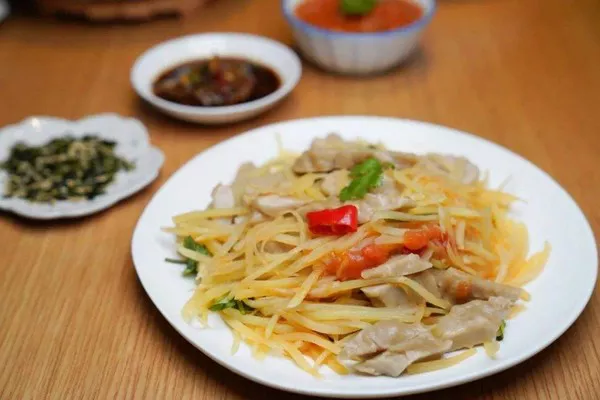Maintaining a calorie deficit is an effective way to lose weight. This means burning more calories than you consume in a day. While exercise can help burn calories, it’s equally important to watch what you eat and maintain a healthy diet. Choosing the right foods that keep you full for longer and provide essential nutrients is crucial. In this article, we’ll look at what to eat for calorie deficit.
1.Fruits and Vegetables
Fruits and vegetables are low in calories and high in fiber, which makes them perfect for weight loss. They’re also rich in vitamins, minerals, and antioxidants that can boost your immune system and improve your overall health. A good rule of thumb is to fill half your plate with fruits and vegetables. Incorporate a variety of colors to make sure you’re getting a diverse set of nutrients.
2.Lean Proteins
Protein is essential for building and repairing muscles, and it can also help you feel full for longer. Choose lean meats like chicken, turkey, fish, and beef (with little or no visible fat) as they’re lower in calories and saturated fats. You can also add plant-based sources of protein like lentils, chickpeas, tofu, and quinoa to your diet.
3.Whole Grains
Whole grains are high in fiber and essential nutrients like iron, magnesium, and vitamin B. They’re also lower in calories compared to refined grains like white bread and pasta. Choose whole grains like brown rice, quinoa, oats, and whole-wheat bread to keep you feeling full for longer and provide essential nutrients.
4.Nuts and Seeds
Nuts and seeds are a great source of healthy fats, protein, and fiber. They’re also rich in vitamins and minerals like vitamin E, magnesium, and zinc. However, they’re also high in calories, so it’s important to eat them in moderation. Stick to a handful of nuts or seeds as a snack or add them to your meals for a nutrient boost.
5.Low-Fat Dairy
Low-fat dairy products like milk, yogurt, and cheese are rich in calcium, vitamin D, and protein. Calcium is important for bone health, while vitamin D helps absorb calcium from food. Protein can also help you feel full for longer. However, it’s important to choose low-fat options as they’re lower in calories and saturated fats.
6.Water
Drinking plenty of water is essential for weight loss as it can help you feel full and reduce your calorie intake. Aim to drink at least 8-10 glasses of water per day, and more if you’re exercising. You can also add flavor to your water by infusing it with fruits like lemon, lime, or strawberries.
7.Spices and Herbs
Using spices and herbs to add flavor to your meals can help reduce your calorie intake as you won’t need to rely on high-calorie sauces or dressings. They’re also rich in antioxidants and have anti-inflammatory properties that can improve your overall health. Some great options include garlic, ginger, turmeric, cilantro, and basil.
In summary
Maintaining a calorie deficit is crucial for weight loss, and eating the right foods can make all the difference. Incorporating a variety of fruits and vegetables, lean proteins, whole grains, nuts and seeds, low-fat dairy, water, and spices and herbs can help you achieve your weight loss goals while providing essential nutrients for overall health. Remember to eat mindfully, listen to your body’s hunger cues, and enjoy your food.
Related topics:


